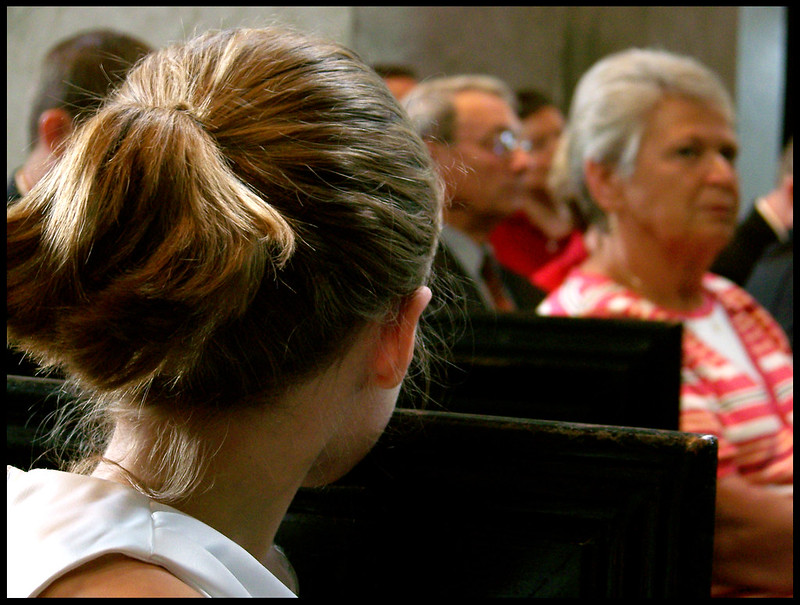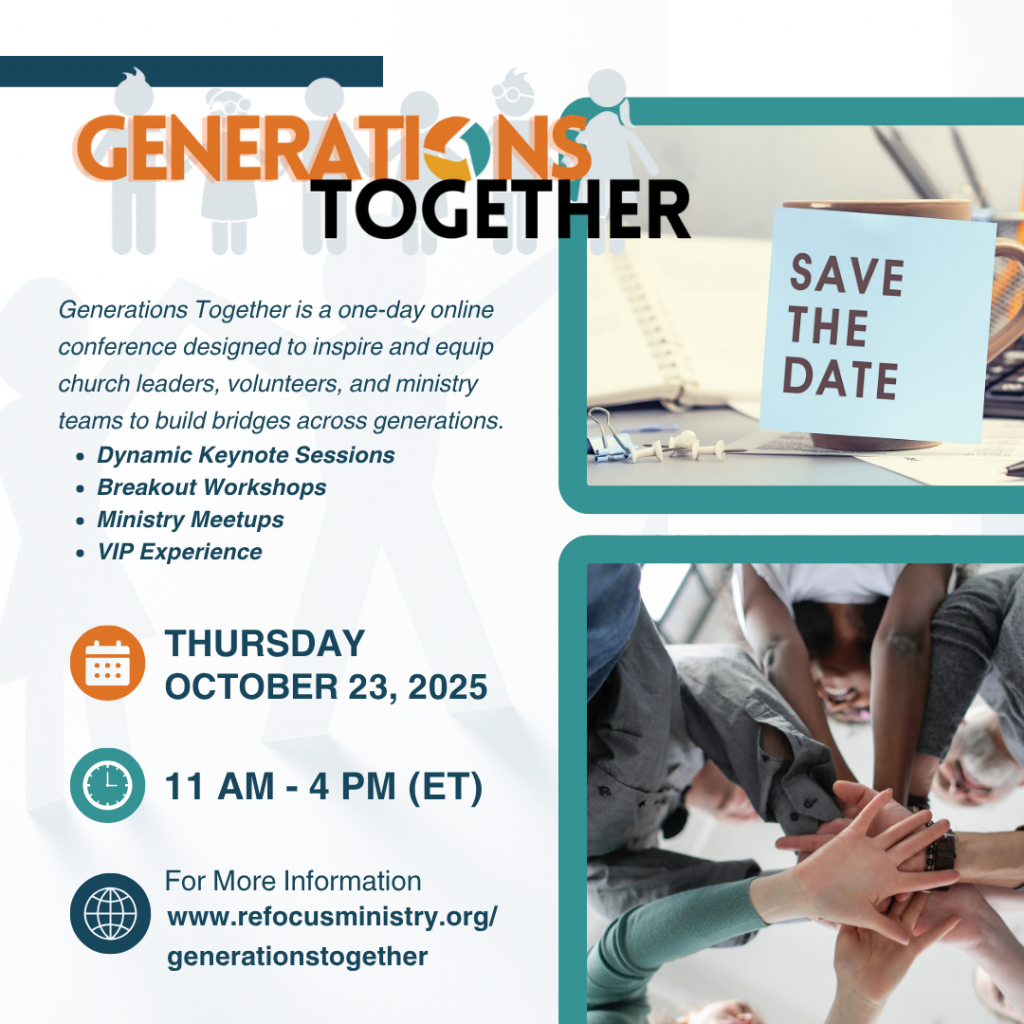In recent years, I’ve seen multiple helpful posts regarding how to help children to engage in the worship service or, at the very least, keep them engaged so that others can worship. Ideas, very many of them similar to ones I’ve shared here for years, are floating about and churches are trying out some new ways of gathering together, some for the very first time.
This has the potential to be an incredible boon for connecting generations and creating space for corporate worship across America.
My concern however is that it will have exactly the opposite affect.
You see, first and foremost, intergenerational ministry is not about putting people of multiple generations in a communal space where worship, prayer, and/or teaching takes place. That might be what happens BUT that is not the heart of intergenerational ministry.
True intergenerational ministry is a culture which strives to create environments that foster generational mentorship, intergenerational relationships, and multi-generational experiences that focus on welcome, belonging, and discipleship.
It’s not about putting people in the same space and making sure that everyone can somehow make it through an hour together and hopefully not distract one another too much. That’s a crisis response or a coping mechanism, not a vibrant place of faith, community and worship.
Intergenerational ministry is something that needs time and cultivation. In churches that are strongly separated along generational lines, the introduction of intergenerational worship, study, and prayer is something that should be entered into circumspectly with care given to community needs and corporate identity. There is no cookie-cutter method for intergenerational ministry. Each faith community has particular needs and considerations that must be addressed as intergenerational culture is lived into.
The danger that exists with creating a few busy bags, printing out sermon sheets, making coloring pages available, and the like, isn’t that those things are inherently unhelpful (I actually recommend them in certain contexts); it’s that those things do not make an intergenerational worship service.
Intergenerational means just that – integenerational. While most worship services now may be focused on the comfort and participation of the majority of adults, simply adding in elements for children does not make it intergenerational. It makes it “kid-friendly.” But when we are talking about intergenerational, we need to be thinking through the lens of every generation and, more precisely, every person who might be attending our gatherings. We need to think about accessibility not just for one subset of people but for all people. And that, my friends, takes time.

My encouragement to those of you dipping your toes in the waters of corporate worship for perhaps the first time is to take the first few Sundays in stride. It’s gonna be messy and uncomfortable and you will need time to grow a culture that moves from triangle-shaped gatherings (leading from the front) to circle-shaped gatherings (leading from the community). It takes time to understand that all generations, all ages and all stages, have much to bring to our gatherings – not just to be tolerated but to be welcomed.
You might find that your faith community is ready to begin exploring ways to connect the generations in corporate worship, learning, and serving settings. GREAT! I would be happy to point you in the direct of some fantastic resources.
You might find that your faith community is not ready to engage in fully-integrated worship and learning settings for all ages, all stages. That’s fine too. Forcing a square peg in a round hole doesn’t work. But, changing the shape or the culture can work and given time and community buy-in, you might find ways to begin to overlap generations and find space to allow generational discipleship and intergenerational relationships to flourish. I’d be happy to walk alongside of you as you begin to explore ways to make that happen. (A great place to start is here)
Regardless, the major takeaway of this blog post is simply this: While churches may be exploring worship services that are inclusive of all generations by necessity or even desire, without the groundwork of cultural chance, it may not lead to a truly intergenerational community grounded in meaningful relationships and generational discipleship..
But it doesn’t have to remain that way. Worshiping together can become a truly inclusive and formational experience and can be an important part of a growing and connected intergenerational community.
Coming this Fall!!
Generations Together 2025, An Online Conference for Intergenerational Ministry

We are thrilled to invite you to be part of a groundbreaking online event hosted by ReFocus Ministry — Generations Together: Bridging Faith Across Ages, taking place October 23, 2025.
Generations Together is a one-day live online event designed to equip churches for strategic and sustainable intergenerational discipleship. Hosted by Dr. Christina Embree, ReFocus Ministry founder and director, the conference will guide participants in identifying generational dynamics in their faith communities, removing barriers to connection, and building bridges across ages. https://refocusministry.org/generations-together-2025/
About the Author

Christina Embree is the founder and director of ReFocus Ministry. She holds a masters in ministry focused on Children, Youth, and Family Ministry and a doctorate in spiritual formation with a focus on age segregation and intergenerational ministry. In addition to coaching churches of multiple denominations and traditions all around the globe, Christina serves as the Minister of Generational Discipleship for the Great Lakes Conference of the Brethren in Christ and as a pastor at Plowshares Brethren in Christ in Lexington, Kentucky. She is widely recognized as a speaker and author in the areas of generational discipleship, intergenerational ministry, and family ministry. As the mother of three children, she is familiar with the challenges of faith at home and pastoral ministry. She along with her husband Luke share a love for the church, their community, and the global work of peace and restoration through Jesus.

